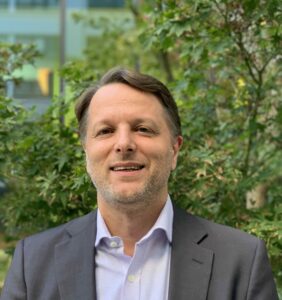An open-source community for official statistics, focused on delivering concrete solutions through co-investment and co-innovation

A message from Eric Anvar
Chair of the SIS-CC Management Level Group (MLG) and, Head of Smart Data at the Statistics and Data Directorate, OECD
Welcome,
As we traverse the dynamic and increasingly complex landscape of data and statistics, the Statistical Information System Collaboration Community (SIS-CC) emerges not merely as a consortium but as a beacon of innovation, sharing, and progress. Founded on the principles of openness, collaboration, and the relentless pursuit of excellence, SIS-CC stands as a testament to what collective action and forward-thinking can achieve in the world of official statistics.
Our journey began out of necessity, recognising the common challenges we face in the realm of data dissemination and production. The landscape of statistical information is ever-evolving, and so too is the need for scalable, sustainable solutions. This need led to the formation of an alliance united by shared goals, aspirations, and the commitment to not just confront challenges but to turn them into opportunities through co-investment and co-innovation.
At the heart of our efforts lies Statistical Data and Metadata eXchange (SDMX), which we believe is pivotal not just for enhancing data quality and interoperability but also for fostering efficiency and innovation in statistical systems worldwide. SDMX is more than a technical standard; it’s a catalyst for transformation, empowering countries and organisations to unlock the full potential of their data.
Our strategy for 2020-2025 set a clear roadmap for our community. It emphasised our commitment to product excellence, the delivery of concrete solutions to common problems, and the mutualisation of costs. Our focus has been on creating tools that not just meet the current needs of our members but anticipating future challenges, ensuring that our community remains at the forefront of statistical innovation.
“Collaboration and partnership are at the heart of our mission, covering a diverse range of areas, working alongside a network of international partners to champion a “standards-first” methodology.”
The SIS-CC is not just about the technologies we create; it is about the bonds we forge. Our global community of members, along with our partners, exemplifies the power of shared knowledge and the virtues of open source development. Through our collaborative efforts, we have seen the realisation of the .Stat Suite – a comprehensive platform for the management of the data lifecycle, embodying the principles of SDMX-native design, component-based architecture, and open-source delivery.
Our initiatives span from modernising the production and dissemination of official statistics systems to building capacity in SDMX data modelling practices, supporting open data agendas, enhancing labour market information systems through innovative solutions, and bringing together the rich semantics of SDMX with the technical advancements of artificial intelligence. Each initiative reinforces our belief in the transformative power of data when harnessed collectively and openly.
As we look towards the future, we remain steadfast in our mission to innovate, share, and grow together. We invite you to join us in this endeavor, to bring your ideas, your challenges, and your aspirations to a community where collaboration drives innovation, and innovation shapes the future of statistical information systems.
Together, we are not just shaping the future of statistics; we are defining it!

